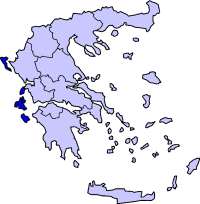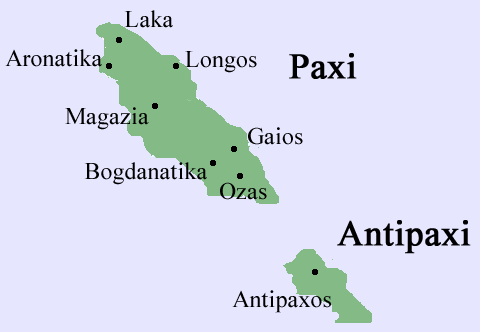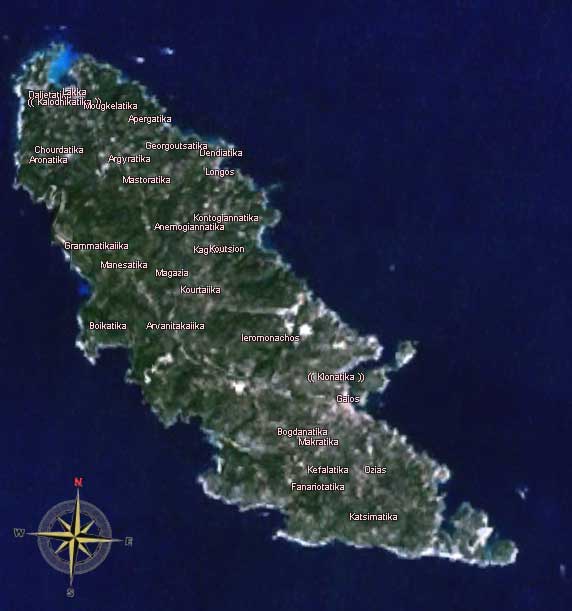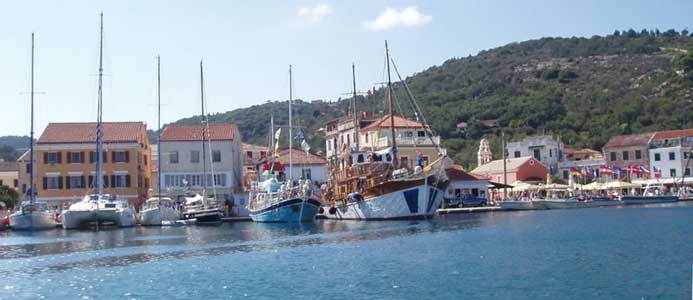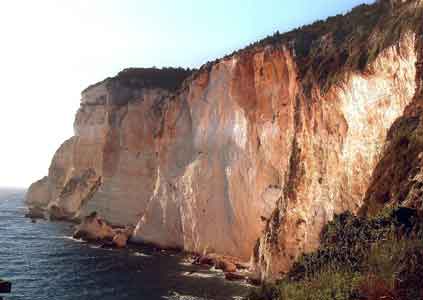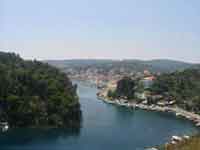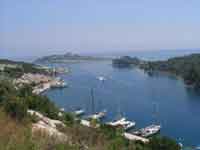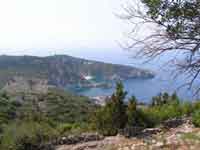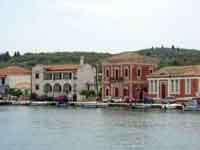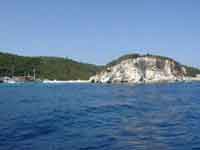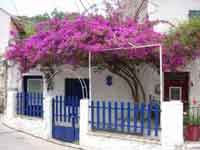|
|
Paxi (Greek Παξοί, Albanian: Paksi) formerly known as "Paxos" and sometimes spelled "Paxoi", is the smallest of the Ionian Islands. In fact in Greek it is a plural form and it refers to a complex of islands of both Paxi and Antipaxi (a smaller nearby island famous for its sandy beaches). In Greek mythology Poseidon created the island by striking Corfu with his trident, so that he and wife Amphitrite could have some peace and quiet. The island is approximately eight miles in length and tipped up towards the west. The east coast is dominated by steep white, chalky cliffs that are greatly eroded at sea level. Much of the attractive landscape is still covered in olive groves. Although possibly inhabited from prehistoric times, the Phoenecians are traditionally held to have been the first settlers on Paxi. The name is believed to be derived from Pax which meant slate in their language. The Romans ruled the island from the 2nd century BC, and during the Byzantine period and Middle ages it was constantly attacked by pirates. After various rulers and Crusaders had passed Paxi, the island was taken by the Venetians in the beginning of the 16th century. At the end of the 18th century, the island belonged to the Napoleonic army, and for a while, it belonged to the Ionian Union. During most of the 19th century Paxi was a British protectorate. The Romans ruled the island from the 2nd century BC, and during the Byzantine period and Middle ages it was constantly attacked by pirates. After various rulers and Crusaders had passed through, the island was taken by the Venetians at the end of the 14th century. During the Napoleonic wars the Ionian Islands were taken by the French, a Russo-Turkish alliance, and finally by the British, who established the Ionian Union in 1815. The war of Independence had broken out in 1821. In 1864 together with the rest of the Heptanese, Paxi was ceded to the Greek state Among recent well known semi-permanent British inhabitants were Audrey Good, former commander of the UN refugee bases in Epirus (following the Greek Civil War, actor Peter Bull (author of 'It Isn't all Greek to me') and actress Suzannah York. Inhabitants: Paxiot s., -s pl.
Division of the municipality
Getting there The island is serviced by ferry boats from the mainland Greece port of Igoumenitsa (1.5 hours), speed-boats from Corfu (1–1.5 hours)and high-speed ferries from Bari and Brindisi (4 hours). There is no airport but there is a private-owned seaplane service (7 minutes from Corfu town).
Harbour of Gaios [Source] General Information Paxos is a quite haven away from it all and it is an ideal place for families and people who want to enjoy quiet holidays. Its most vibrant place is the capital Gaios, which boasts 2 discos and a dozen bars. There are another two main villages, the picturesque harbours of Logos and Laka. High season however is short, lasting usually from 28 of July to 25 of August. Most visitors come from Italy and seem to occupy the island in August. Dialect In Paxos they speak a dialect which resembles the one of Corfu and it has similar prosody. It is heavily influenced by Italian. There is a glossary of Paxiot expressions one can refer to. Accommodation There is no shortage of accommodation in the island and visitors will have no problems finding a place to stay (unless they visit during high season without having booked in advance). There are three hotels and numerous rooms and villas for rent. You can contact directly the owners of rooms and villas from the following sites http://www.paxos.tk and http://www.paxos-greece.com (which also provide a lot of general information as well as links to alternative accommodation). Paxos is part of a European network called Cultural Village of Europe.
Retrieved from "http://en.wikipedia.org"
 |
|
||||||||||||||||
|
|
